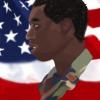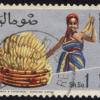-
Posts
91 -
Joined
-
Last visited
Reputation Activity
-
 Gene Parmesan got a reaction from Sigaba in Reading suggestions for graduate students in history programs
Gene Parmesan got a reaction from Sigaba in Reading suggestions for graduate students in history programs
3rd year MA in American Studies. Beginning PhD in Fall 2013.
Pivotal books I've read in courses and (somewhat) related to my interests:
Edmund Morgan- American Slavery, American Freedom
John Blassingame- The Slave Community
Raymond Williams- Culture and Society
Rhys Isaac- The Transformation of Virginia, 1740-1790
William Cronon- Changes in the Land
Robin Kelley- Freedom Dreams
George Lipsitz- Time Passages, Possesive Investment in Whiteness, and/or How Racism Takes Place
Benedict Anderson- Imagined Communities
-
 Gene Parmesan reacted to Riotbeard in What are You Currently Reading?
Gene Parmesan reacted to Riotbeard in What are You Currently Reading?
Jim Downs, Sick from Freedom: African-American Illness and Suffering during the Civil War and Reconstruction
Susan Reverby, Examining Tuskegee: The Infamous Syphillis Study and its Legacy
I also have to teach William Barney's The Making of a Confederate:Walter Lenoir's Civil War soon, so I will be reading that too.
-
 Gene Parmesan got a reaction from Sigaba in Fall 2013 Applicants?
Gene Parmesan got a reaction from Sigaba in Fall 2013 Applicants?
I showed my SOP to as many people as possible. I noticed some profs read for content while other read for structure, and their combined comments produced what I'd like to think of as a workable and efficient SOP. I've also heard one prof offer this advice, do three different quickwrites: one when you get out of class (if this applies to you), one after you've had a beer/wine/coffee, and one when you've just woken up, finished running, or anything that relaxes you.
I found it also really helps if you determine the tone of your SOP. I knew people who made their SOP really personal and weaved personal narrative with research interests. Personally, I included one sentence about personal struggle as an undergrad, but beyond that my SOP was 3 pages or so of research discussion (what I've studied, what I want to study, why I want to study it at that school).
Regarding the app process, I wish I would have started earlier. I began writing around October and felt like I was scrambling to finish in November after my 30th or so draft (no kidding). If you have the time and energy to jot down your ideas now, go for it. I wouldn't recommend aiming for a full draft until the fall. I noticed my interests changed a lot and I found new ways to articulate those interests as I read more and talked more w/ faculty. Also, I worked 2-3 jobs at a time during the fall semester w/ classes so I really didn't set aside enough time "brainstorm" ideas and such, so if you can anticipate a busy fall semester/workload then getting started as soon as possible helps.
If you can, start an excel sheet for your prospective programs. Write in deadlines, transcript requirements, gre requirements, POIs and their emails, and whatever else you can gather that will keep you from having 7 internet tabs open at once.
-

-

-

-
 Gene Parmesan got a reaction from lafayette in Fall 2013 Applicants?
Gene Parmesan got a reaction from lafayette in Fall 2013 Applicants?
I showed my SOP to as many people as possible. I noticed some profs read for content while other read for structure, and their combined comments produced what I'd like to think of as a workable and efficient SOP. I've also heard one prof offer this advice, do three different quickwrites: one when you get out of class (if this applies to you), one after you've had a beer/wine/coffee, and one when you've just woken up, finished running, or anything that relaxes you.
I found it also really helps if you determine the tone of your SOP. I knew people who made their SOP really personal and weaved personal narrative with research interests. Personally, I included one sentence about personal struggle as an undergrad, but beyond that my SOP was 3 pages or so of research discussion (what I've studied, what I want to study, why I want to study it at that school).
Regarding the app process, I wish I would have started earlier. I began writing around October and felt like I was scrambling to finish in November after my 30th or so draft (no kidding). If you have the time and energy to jot down your ideas now, go for it. I wouldn't recommend aiming for a full draft until the fall. I noticed my interests changed a lot and I found new ways to articulate those interests as I read more and talked more w/ faculty. Also, I worked 2-3 jobs at a time during the fall semester w/ classes so I really didn't set aside enough time "brainstorm" ideas and such, so if you can anticipate a busy fall semester/workload then getting started as soon as possible helps.
If you can, start an excel sheet for your prospective programs. Write in deadlines, transcript requirements, gre requirements, POIs and their emails, and whatever else you can gather that will keep you from having 7 internet tabs open at once.
-
 Gene Parmesan got a reaction from theregalrenegade in Reading tips for graduate students in history programs
Gene Parmesan got a reaction from theregalrenegade in Reading tips for graduate students in history programs
Since we've been discussing how to read books effectively in a short time, I'm curious to learn how many of you take external notes on monographs. This is somewhat related to the thread, "To Buy or Borrow?" In a more recent post a few people mentioned checking out books from the library and taking extensive notes externally outside of the margins. I've been experimenting with a few note-taking strategies, and they include the following:
-Using thin post-it notes to mark pages in a book. Typically, I'll use two colors like blue and green. Blue for argument/method/theory, and green for content/evidence/case studies that are relevant to a write up or relate to something else I've read. This can get tedious or confusing sometimes, so I'll just use one color and mark all relevant pages.
-Writing a list of the author's critical vocabulary in the first blank page of the book if I own the book. So for example, I just read Don Mitchell's Lie of the Land and marked all relevant definitions of landscape and cultural geography in the blank pages. This works for identifying periodization, too.
-External notes on blank paper that identify thesis and method. I also take notes of the author's outline of chapters that they generally put in the intro. That way when I skim chapters I can refer to my paper note to quickly remember what the point of the chapter was in their words. Later I try to go back and type all my notes.
On a good day, I'll be able to practice all three of these strategies, but sometimes it ends up being an odd mixture of the them. So if anyone would like to share how they take notes or if they have a particular strategy that works for them, that'd be great, as I'm trying myself to learn an effective combo of strategies. Also, I noticed some people are starting to use kindles/e-readers more, at least for articles and PDF. Maybe they can share how they take in-text digital notes.
-
 Gene Parmesan reacted to BCHistory in Reading suggestions for graduate students in history programs
Gene Parmesan reacted to BCHistory in Reading suggestions for graduate students in history programs
Some more for 19th- and 20th- century Americanists. The list is by no means exhaustive but mainly represents books and a few articles that I've found helpful and/or important historiographically. Also, for the sake of time, I have not included subtitles or journal titles, but these should all be easy to find.
Patrick Allitt, Catholic Converts
Benedict Anderson, Imagined Communities
Sven Beckert, The Monied Metropolis
Gail Bederman, Manliness and Civilization
Jeanne Boydston, Home and Work
Elsa Barkley Brown, "'What Has Happened Here,'" and "Negotiating and Transforming the Public Sphere"
Jon Butler, Awash in a Sea of Faith
Margot Canaday, The Straight State
Dan Carter, The Politics of Rage
David Cecelski and Timothy Tyson, eds., Democracy Betrayed
Katherine Charron, Freedom's Teacher
George Chauncey, Gay New York
Lizabeth Cohen, Making a New Deal, and A Consumers' Republic
Patricia Cline Cohen, The Murder of Helen Jewett
Karen Cox, Dreaming of Dixie
Jane Dailey, Glenda Gilmore, and Bryant Simon, eds., Jumpin' Jim Crow
Brian DeLay, War of a Thousand Deserts
Steven Deyle, Carry Me Back
John Dittmer, Local People
Jay Dolan, The Immigrant Church, Catholic Revivalism, The American Catholic Experience, and In Search of an American Catholicism
W.E.B. Du Bois, Black Reconstruction in America
Drew Gilpin Faust, James Henry Hammond and the Old South
Crystal Feimster, Southern Horrors
Barbara Fields, "Ideology and Race in American History," and "Slavery, Race, and Ideology in the United States of America"
Leon Fink, The Maya of Morganton
Roger Finke and Rodney Stark, The Churching of America
Eric Foner, Reconstruction
Gaines Foster, Ghosts of the Confederacy
Elizabeth Fox-Genovese, Within the Plantation Household
Eugene Genovese, The Political Economy of Slavery, and Roll, Jordan, Roll
Lori Ginzberg, Women and the Work of Benevolence
Lawrence Glickman, A Living Wage
Thavolia Glymph, Out of the House of Bondage
Kenneth Greenberg, Honor and Slavery
R. Marie Griffith, Born Again Bodies
Steven Hahn, A Nation Under Our Feet
Steven Hahn and Jonathan Prude, eds., The Countryside in the Age of Capitalist Transformation
Jacquelyn Dowd Hall, "The Long Civil Rights Movement and the Political Uses of the Past"
Pekka Hamalainen, Comanche Empire
Nathan Hatch, The Democratization of American Christianity
Christine Heyrman, Southern Cross
Evelyn Brooks Higginbotham, "African-American Women's History and the Metalanguage of Race"
Daniel Walker Howe, What Hath God Wrought
Hassan Jeffries, Bloody Lowndes
Philip Jenkins, Hoods and Shirts, Cold War at Home, The Next Christendom, and The New Anti-Catholicism
Paul Johnson, A Shopkeeper's Millennium
Paul Johnson and Sean Wilentz, The Kingdom of Matthias
Robin D.G. Kelley, "'We Are Not What We Seem'"
Adriane Lentz-Smith, Freedom Struggles
Robert Korstad and Nelson Lichtenstein, "Opportunities Found and Lost"
Nelson Lichtenstein, State of the Union
Stephanie McCurry, Masters of Small Worlds
Micki McElya, Clinging to Mammy
Lisa McGirr, Suburban Warriors
John McGreevy, Parish Boundaries, and Catholicism and American Freedom
Danielle McGuire, At the Dark End of the Street
James McPherson, Battle Cry of Freedom
Tiya Miles, Ties That Bind
Michele Mitchell, Righteous Propagation
Edmund Morgan, American Slavery, American Freedom
Mark Neely, The Fate of Liberty, and "Was the Civil War a Total War?"
Stephen Norwood, "Bogalusa Burning"
Annelise Orleck, Storming Caesars Palace
Robert Orsi, The Madonna of 115th Street, and Thank You, St. Jude
Peggy Pascoe, What Comes Naturally
Charles Payne, I've Got the Light of Freedom
Albert Raboteau, Slave Religion
Steven Reich, "Soldiers of Democracy"
Seth Rockman, Scraping By
David Roediger, The Wages of Whiteness
Anne Rose, Transcendentalism as a Social Movement
Willie Lee Rose, Rehearsal for Reconstruction
Steven Rosswurm, The FBI and the Catholic Church
Adam Rothman, Slave Country
Leslie Schwalm, A Hard Fight for We
Joan Scott, "Gender: A Useful Category of Historical Analysis"
Charles Sellers, The Market Revolution
Susan Smith, Sick and Tired of Being Sick and Tired
Christine Stansell, City of Women
Melvyn Stokes and Stephen Conway, eds., The Market Revolution in America
Thomas Sugrue, Origins of the Urban Crisis, and Sweet Land of Liberty
Patricia Sullivan, Lift Every Voice
E.P. Thompson, "The Moral Economy of the Crowd in the Eighteenth Century"
Grant Wacker, Heaven Below
Deborah Gray White, Ar'n't I a Woman?
Sean Wilentz, Chants Democratic, and The Rise of American Democracy
Nan Woodruff, American Congo
C. Vann Woodward, Tom Watson, Origins of the New South, and The Strange Career of Jim Crow
Bertram Wyatt-Brown, Southern Honor
Susan Zaeske, Signatures of Citizenship
Andrew Zimmerman, Alabama in Africa
-
 Gene Parmesan got a reaction from hbeels in Sh^t People Say About (History) Graduate School
Gene Parmesan got a reaction from hbeels in Sh^t People Say About (History) Graduate School
How about when you say, "I'm pursuing a PhD in American History."
They simply respond, "Oh."
-
 Gene Parmesan got a reaction from Safferz in Reading suggestions for graduate students in history programs
Gene Parmesan got a reaction from Safferz in Reading suggestions for graduate students in history programs
Some quick suggestions of books that have cropped up for me, by no means exhaustive or definitive, and in no order than what I could conjure in my brain in the moment. Many of these books might be considered American Studies, FYI.
George Lipsitz, How Racism Takes Place or Rainbow at Midnight
Robin Kelley, Race Rebels and Freedom Dreams and Hammer and Hoe
Nikhil Pal Singh, Black is a Country
Herbert Gutman, "Work, Culture, and Society in Industrializing America, 1815-1919"
Mark Naison, Communists in Harlem During the Depression
Mark Solomon, The Cry Was Unity
Bill Mullen, Popular Fronts: Chicago and African American Cultural Politics, 1935-46
James Barrett, William Z. Foster and the Tragedy of American Radicalism
Barbara Foley, Radical Representations: Politics and Form in US Proletarian Fiction, 1929-41
David Montogomery, The Fall of the House of Labor
Michael Denning, The Cultural Front
Danny Widener, Black Arts West
-
 Gene Parmesan reacted to goldielocks in Fall 2012 Applicant Chit Chat
Gene Parmesan reacted to goldielocks in Fall 2012 Applicant Chit Chat
I would chime in here to say that I would never start up a conversation about how faculty can "improve their own program" — and I say this with lots of respect, Sigaba. I just don't think that I'm in any place, as a fledging grad student, to offer advice to established faculty on how they can create a "more dynamic" program. I'd be happy to tactfully answer questions about why I chose the program I chose... but I'd never offer suggestions about how to improve another one. Just my $.02.
C&C: I was pretty open all along with my POIs about my other offers. They expect you to be considering other offers. They go through this every year. When it came time for me to start declining, I tried to do the following: 1. Express sincere gratitude for the POI's time 2. Express how flattered I was to receive an offer 3. Note that I've decided to attend another program that I feel will best serve my research interests 4. Mention that I hope we can cross paths in the future 5. Do all of this concisely, and as soon as I'd decided -- so as not to waste anyone's time or resources, being mindful of those waitlisted.
Best of luck!
-
 Gene Parmesan got a reaction from naturalog in 2012 History Admission Thread
Gene Parmesan got a reaction from naturalog in 2012 History Admission Thread
Another thing to mention is to remain respectful to people trying to make decisions (ie. don't flood them with questions about how and when they'll accept or not).
-
 Gene Parmesan reacted to Hogs of War in Fall 2012 Applicant Chit Chat
Gene Parmesan reacted to Hogs of War in Fall 2012 Applicant Chit Chat
For the love of God/Science I just want to know if I got in UMass. . . Please leave me with the shred of sanity I have left. . . I'll need it when I'm kicking ass and taking names in your History Program.
-
 Gene Parmesan reacted to RevolutionBlues in Fall 2012 Applicant Chit Chat
Gene Parmesan reacted to RevolutionBlues in Fall 2012 Applicant Chit Chat
Merde. Thanks for the info!
-
 Gene Parmesan reacted to Hogs of War in Sh^t People Say About (History) Graduate School
Gene Parmesan reacted to Hogs of War in Sh^t People Say About (History) Graduate School
And just to be clear, 97.25% of all people who reference Howard Zinn's book have not actually read it, but instead only know it from the reference to it in the movie "Good Will Hunting".
Because a wicked suppah smart guy talked about it, it has to be wicked awesome, right?
-
 Gene Parmesan got a reaction from Hogs of War in Sh^t People Say About (History) Graduate School
Gene Parmesan got a reaction from Hogs of War in Sh^t People Say About (History) Graduate School
Or when people are all, "OMG HAVE YOU READ HOWARD ZINN'S* BOOK ON AMERICAN HISTORY?"
So I say, "No I haven't but I'll look for it."
*note: I have absolutely nothing against this book.
-
 Gene Parmesan reacted to Nordicllama in Fall 2012 Applicant Chit Chat
Gene Parmesan reacted to Nordicllama in Fall 2012 Applicant Chit Chat
IT'S MY DECISION, AND I NEED IT NOW!!!
...if you've been waiting long-term and you need to know now-
CALL D.G.S. WENTWORTH- 877-KNOW-NOW
877-KNOW-NOW?
877-KNOW NOW
...okay it's official. The waiting has gotten to me. I've cracked.
-
 Gene Parmesan got a reaction from Nordicllama in Sh^t People Say About (History) Graduate School
Gene Parmesan got a reaction from Nordicllama in Sh^t People Say About (History) Graduate School
How about when you say, "I'm pursuing a PhD in American History."
They simply respond, "Oh."
-
 Gene Parmesan got a reaction from SapperDaddy in Fall 2012 Applicant Chit Chat
Gene Parmesan got a reaction from SapperDaddy in Fall 2012 Applicant Chit Chat
One time I looked terrified on a plane and ordered a little $7 jack daniels bottle and they handed me three for the price of one. He said "You look like you need these." Success.
-
 Gene Parmesan got a reaction from R_Escobar in Fall 2012 Applicant Chit Chat
Gene Parmesan got a reaction from R_Escobar in Fall 2012 Applicant Chit Chat
One time I looked terrified on a plane and ordered a little $7 jack daniels bottle and they handed me three for the price of one. He said "You look like you need these." Success.
-
 Gene Parmesan reacted to A Finicky Bean in Fall 2012 Applicant Chit Chat
Gene Parmesan reacted to A Finicky Bean in Fall 2012 Applicant Chit Chat
Dear History Grad Cafe-ers,
Okay, I'm officially rejected-across-the-board. I got my Stanford reject just a few minutes ago. Now, I'm going to get off here for awhile and finish my last semester of my MA program (plan b exam in may). To those of you who were accepted: congratulations from the bottom of my heart!! For those of us with no acceptances: I'll see you on here again. I am going to be reapplying in the Fall of 2013. I am going to take next year to write some articles, work on getting published, learn more languages and such.
I will be back.
I will get into a doctoral program.
I have reached my goal of applying before I turned 30. Now, I need to reach my goal and finish up this Master's semester. I think I will pick up German next year-- any other recommendations? I have Romanian, Spanish, and a working knowledge (reading) of French. I think German and Hebrew would be good ones next. Or Hungarian...or Russian...hmmm.
For those of you that have been so gracious to PM me- I WILL be returning your letters. Just give me a bit. I am reading 5 books a week and working on two 25 page papers for May. Also- anyone else want to keep in contact? I would love to know real names and emails and even facebooks (or linked ins). Just PM me for details. So, you all have been amazingly supportive and I look forward to lurking this fall and then getting back into the thick of things in Fall 2013.
Again, congratufuckinglations (in a good way!!) to those who got in! You are all-stars, know that for sure.
Love,
A_Finicky_Bean
PS- If you are in the SF Bay area, let me know...I got the tips on getting to Stanford (and I'm in the east bay) and nice residences. Also, I'm presenting a paper at Berkeley in May if any of you are around (oh, awkward going there when I've got rejected...but so is applying to Indiana's language program this summer and working in the Hoover archives at Stanford).
PPS- I am so happy to have been around such a great group of people and I sincerely hope to become "real life" friends with many/most/all of you.
-
 Gene Parmesan got a reaction from jrah822 in Fall 2012 Applicant Chit Chat
Gene Parmesan got a reaction from jrah822 in Fall 2012 Applicant Chit Chat
Literally holding myself back from emailing Univ of Washington about my application. Its not that I can't wait (it is early after all). More that I'd like to know what final schools I'll be weighing before I leave on my first campus visit trip this week.
-
 Gene Parmesan got a reaction from Mezzo in funded MA programs?
Gene Parmesan got a reaction from Mezzo in funded MA programs?
My master's program (which I'm convinced utterly prepared me for phd apps) has a number of ways to gather teaching experience. While we don't get tuition waivers, we get academic credits for TAing. So, they treat the TA as a class, where you learn strategies from the professor, constantly reflect and write about it, lecture, and receive a grade. this is somewhat betterthan being handed a stack of papers to grade (which I see other depts do). Once you've completed the TA class, there is the possibility of funds to TA. Either way, if you've TAed or plan to, its great to list as teaching experience as long as you emphasize its efficiency in preparing you for college level teaching.!
-
 Gene Parmesan reacted to StrangeLight in Fall 2012 Applicant Chit Chat
Gene Parmesan reacted to StrangeLight in Fall 2012 Applicant Chit Chat
i agree, i think it serves as a good introduction to the major trends in historiography before the cultural turn. but... i think it's usefulness begins and ends as an introduction. the last 20 years has led to some real changes in the profession's method. maybe novick will write a second edition. (or has he? i've seen reprints but not a new edition).
P.S. canada's the best. totally. i'm gonna go get married to someone of the same sex while we get free health care and smoke our decriminalized weed.











